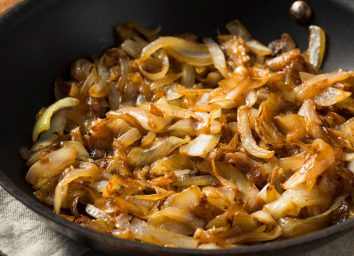What Happens To Your Body When You Eat Onion
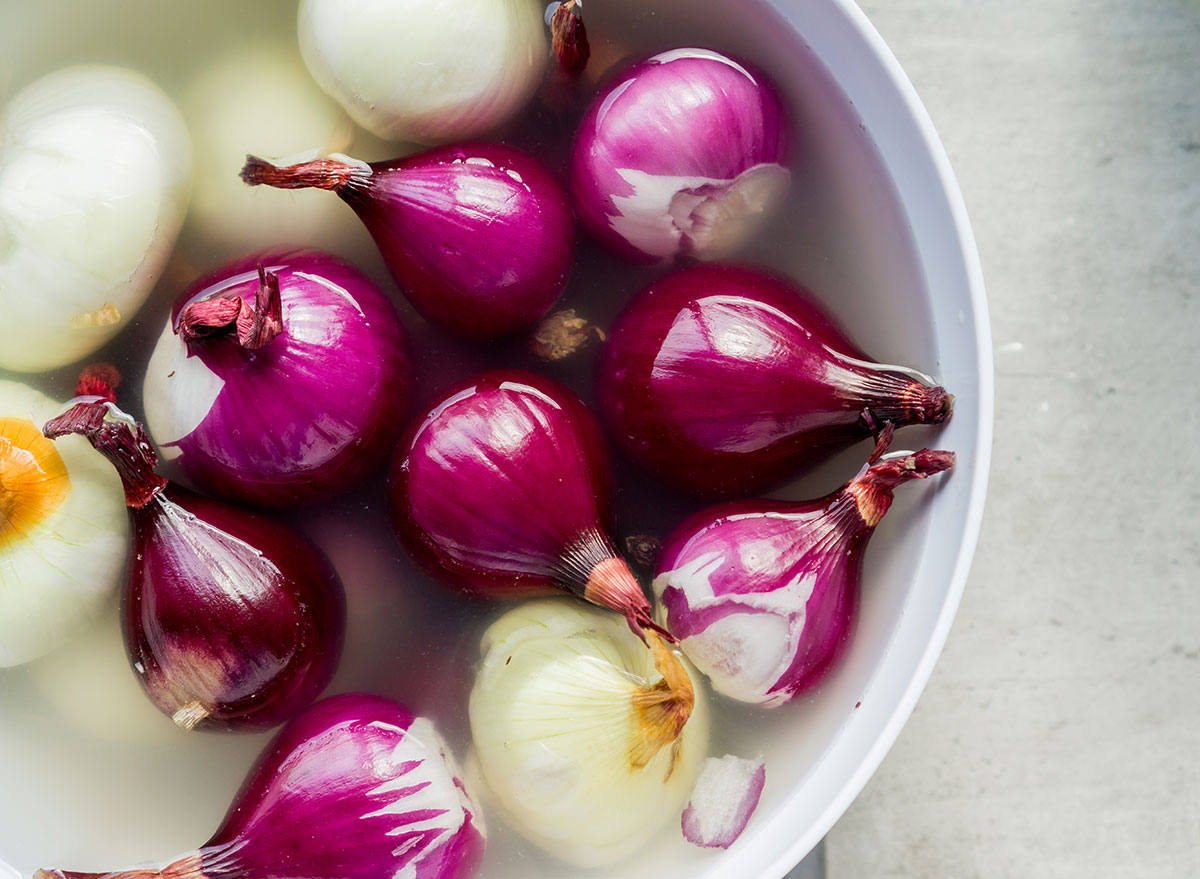
Onions are not everyone's favorite root vegetable—hello, onion breath is a real concern! Aside from needing a breath mint (immediately) after you eat onion, there are a few other less than desirable consequences of eating the veggie. At the same time, onions can offer your body quite a few significant—and some surprising—health benefits that you don't want to miss out on.
Below, we pinpoint just five possible things that could happen to your body when you eat onion, and then, don't miss The #1 Best Juice to Drink Every Day, Says Science.
You may feel gassy.
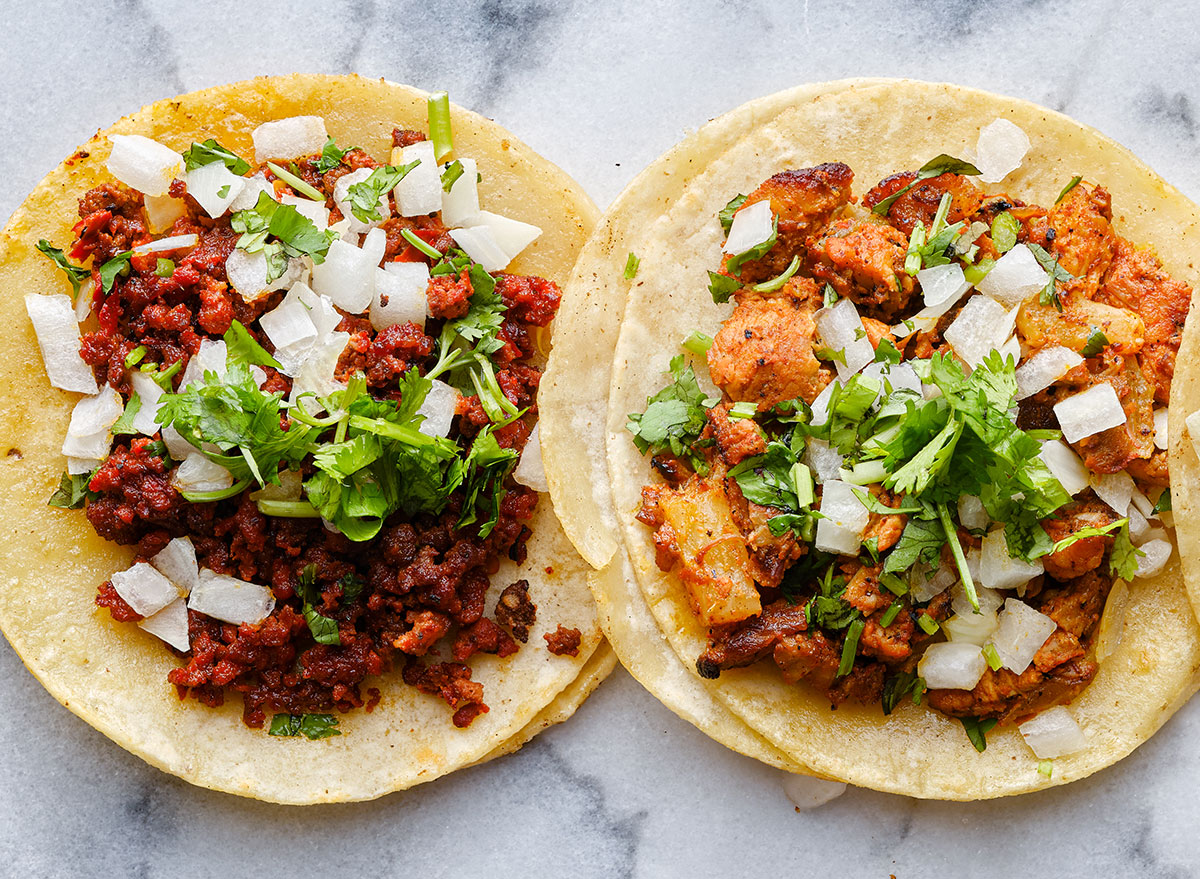
Those freshly chopped bits of onion add a little bite (and sweetness) to your tacos—as well as some healthy antioxidants—however, it may also cause you to become gassy after. Onions contain fructose, which is a naturally occurring sugar in many fruits and some vegetables. And when bacteria in the intestines break down fructose, it results in gas.
You may experience acid reflux.

Do you ever include baby candy onions or pearl onions with your tray of roasted veggies? You could gobble up several of these sweet, little bite-size onions if you wanted in just one sitting. However, the consequences may deter you. Aside from gas and gastrointestinal discomfort, you may experience the burn aka heartburn Also known as acid reflux, onions may cause the lower esophageal sphincter (LES)—which sits at the end of your esophagus and separates it from the stomach—to relax and not do its job.
When the LES relaxes, it can let stomach acid creep up into your esophagus, which can result in a burning sensation. Not only that, but the fermentable fiber that's in onion may cause you to burp, which may also trigger acid reflux symptoms.
Get even more healthy tips straight to your inbox by signing up for our newsletter.
Your eyes may burn as you're chopping them.
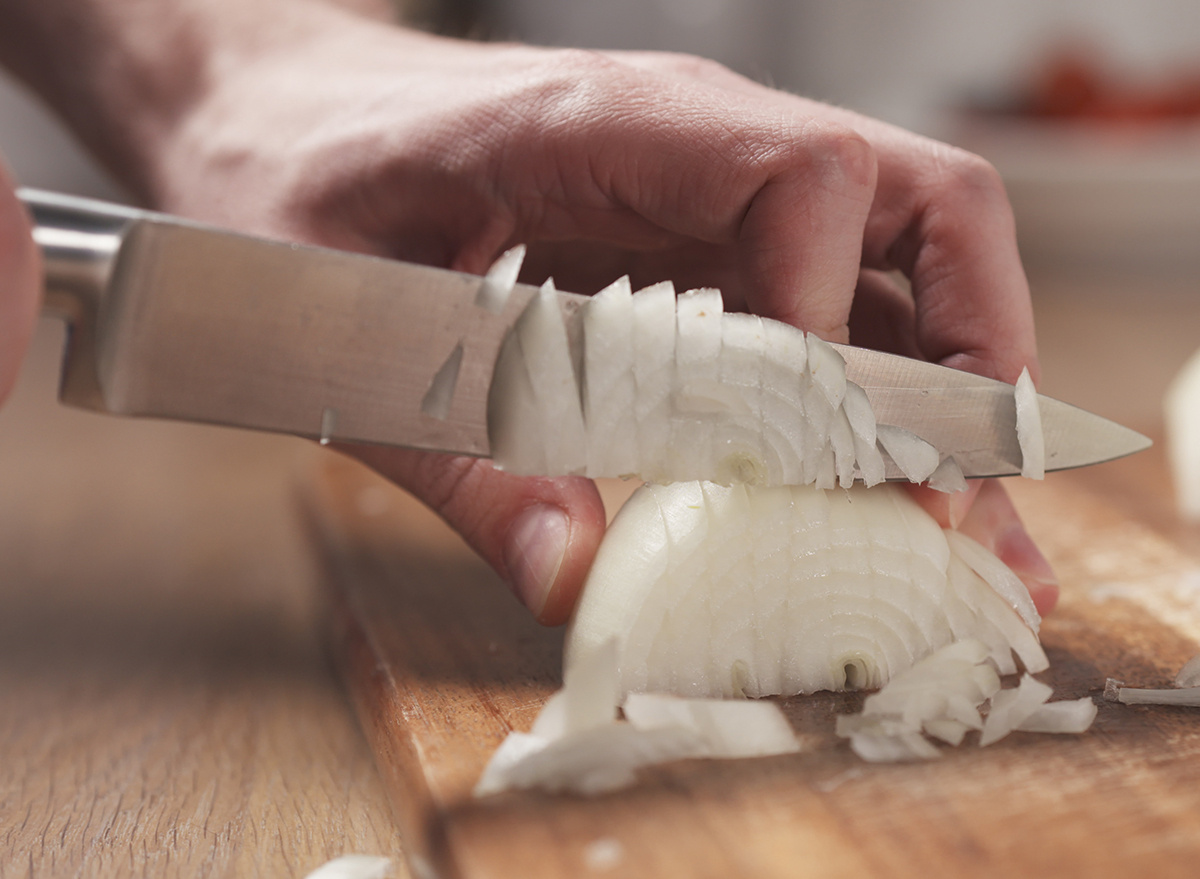
If someone puts you on onion-chopping duty at the dinner party, you may want to reevaluate your friendship with them. This task easily makes the top 10 worst aspects of meal prepping. When you pierce a knife into an onion, you can almost always expect the waterworks to follow, accompanied by an inevitable stinging sensation in your eyes. As it turns out, the reason onions can make you cry is because when you cut into them, they release a chemical called lachrymatory factor (LF)—which is basically a gas.
Claudia Sidoti, Principal Chef and Head of Recipe Development at HelloFresh, previously told us that the key to cutting an onion so that you don't cry is by first soaking the onion in water. Then, be sure to use a sharp knife over a dull one.
"A sharper knife will cause less damage to cell walls, allowing fewer irritants to be released," she says.
Improve gut health.
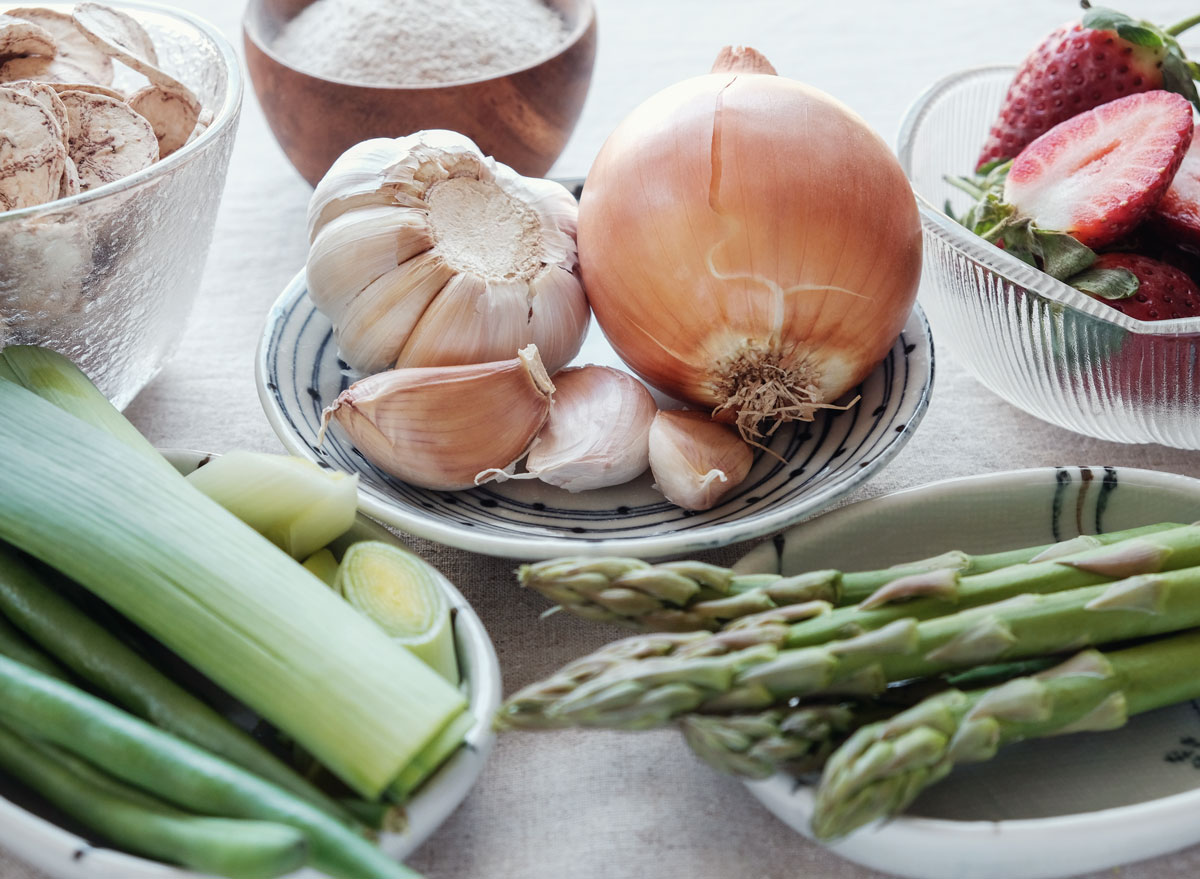
Probiotics are essential for good gut health, but did you know that probiotics can't work to their full potential without the presence of prebiotics? Onions are quite rich in prebiotics, which are a class of dietary fibers found in various fruits, vegetables, and whole grains that your body cannot digest. Instead, they move to your lower digestive tract and produce an environment for healthy gut bacteria (such as probiotics) to grow and essentially feast on. Remember, probiotics are critical for healthy digestion and can even help improve immune function, so it's very important that your gut is filled with them!
And don't miss What Happens To Your Body When You Start Taking Probiotics.
Regular consumption may support heart health.
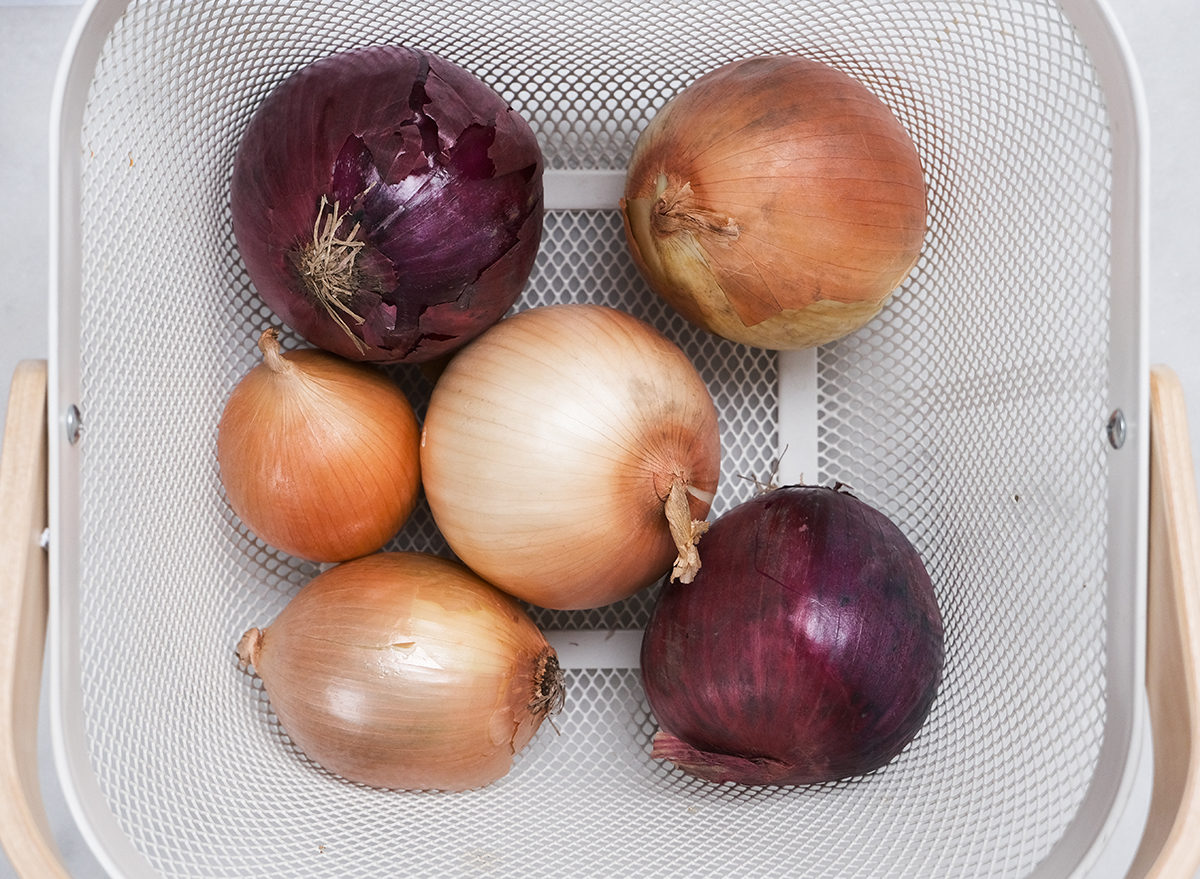
Onions are loaded in antioxidants, and specifically red onions specifically are rich in what's called anthocyanins, which have been shown to reduce the risk of heart disease in several studies. For example, of the 93,600 women observed in a 2013 study, those who had the highest intake of foods rich in anthocyanins were 32% less likely to experience a heart attack than those who ate little to none.
Now, be sure to check out Easy Ways You Can Prevent Heart Disease and Diabetes, According to a Registered Dietitian.

